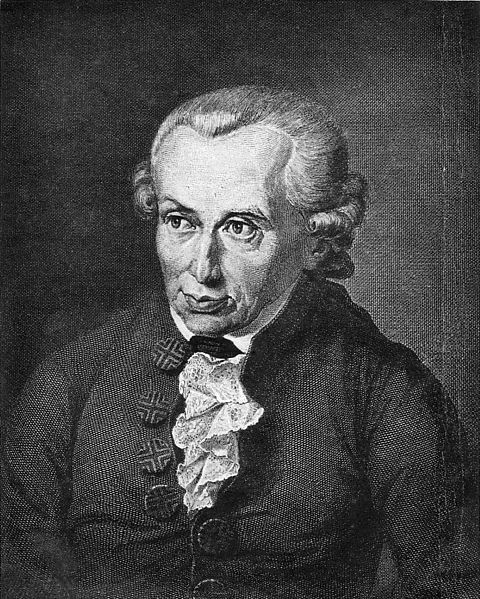
Biography
There is no aspect of modern Western philosophy that does not bear the influence of Immanuel Kant. Without ever leaving the vicinity of his hometown of Königsberg, the philosopher changed the course of ethics, moral philosophy, metaphysics, and aesthetics.
Kant was born in 1724 in Königsberg, then East Prussia, now part of Russia, to a harness-maker of modest means. As a boy, Kant was sent to a Pietist school for his early education. At sixteen, he enrolled in the University of Königsberg, also known as the Albertina, where he became interested in philosophy.
When Kant graduated six years later, he was not financially able immediately to pursue his academic career, and, therefore, worked as a private tutor for several years. At the age of 31, he obtained an unsalaried position as a private docent at the university, lecturing an average of twenty hours per week on an array of subjects including logic, metaphysics, mathematics, and physical geography. In addition to teaching the dominant Wolffian-Leibnizian philosophy, Kant also incorporated ideas from abroad. David Hume (1711–1776) and Jean-Jacques Rousseau (1712–1778), in particular, became influential in Kant’s thought, and he shared his reflections on these thinkers with his students. Kant published several significant essays during the first decades of his career at the Albertina. Although these essays were not nearly as influential as his later works, they already contained the seeds of his “critical philosophy.”
As an academic at the Albertina, Kant led a life of strict self-discipline. It is said that his routine was so rigid that his neighbors would set their clocks by the time of his afternoon walks, which he missed only once, the day he discovered the Emile of Jean-Jacques Rousseau. This self-discipline served him well, allowing him to focus all of his energies on developing his thought. Despite the singular regularity of his routine, Kant led a lively social life. Those who knew him described him as a sparkling conversationalist as well as a captivating lecturer. He entertained frequently at home and was a prominent figure on the Königsberg social scene.
Kant did not publish his first major work, the Critique of Pure Reason, until 1781, at the age of 57. This book was the result of over a decade of reflection in which he published nothing else of significance. However, its appearance quickly established his reputation across Europe, and inaugurated a period in which Kant brought his most enduring works to print. His influential Groundwork of the Metaphysics of Morals (1785), the second edition of the Critique of Pure Reason, the Critique of Practical Reason (1788), and the Critique of the Power of Judgment (1790) all followed within the next decade. These works, together composing Kant’s “critical philosophy,” secured him international renown and came to dominate German philosophy. Kant continued producing significant works well into the 1790s.
Kant’s last official lecture took place in 1796. He died on February 12, 1804.
For more biographical reading, see:
Roger Scruton, Kant: A Very Short Introduction, Oxford: 2001.